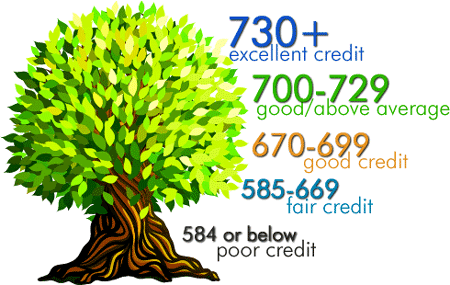Credit Tips From a Certified Credit Counselor
By Agape Foundations Consumer Credit Counselors
updated Thu November 14, 2014

It is important to note that raising a FICO score is a bit like getting in shape -- it takes time and there is no quick fix. In fact, quick-fix efforts can backfire. The best advice is to manage credit responsibly over time.
One general tip is to make sure the information in the credit report is correct. Check the credit report for accuracy at least 90 days before planning any major purchases such as applying for a mortgage. If errors are detected, have them corrected by the lender as well as any credit reporting agency involved. Specific tips for raising a score include:
• Pay bills on time. Delinquent payments and collections can have a major negative impact on a score.
• If there have been missed payments, get current and stay current. The longer a consumer pays bills on time, the better the score.
• Be aware that paying off a collection account will not remove it from the credit report. It will stay on the report for seven years.
• If an individual is having trouble making ends meet, encourage him/her to contact current creditors to negotiate an easier payment schedule. This will not improve the score immediately, but if credit begins to be managed with bills paid on time, the score will get better over time.
• Keep balances low on credit cards and other revolving credit. High outstanding debt can affect a score.
• Pay off debt rather than moving it around. The most effective way to improve a score in this area is by paying down revolving credit.
• Do not open a number of new credit cards just to increase available credit. This approach could backfire and actually lower the score.
• If the credit history is not long, do not open a lot of new accounts too rapidly. New accounts will lower the average account age, which will have a larger effect on the score when there isn’t a lot of other credit information. Also, rapid account buildup can be seen as “risky business”.
• FICO scores distinguish between a search for a single loan and a search for many new credit lines, in part by the length of time over which inquiries occur. Therefore, do rate shopping within a focused period of time.
• Note that it is OK to request and check one’s own credit report and one’s own FICO score. This will not affect a score as long as the credit report is ordered directly from the credit-reporting agency or through an organization authorized to provide credit reports to consumers.
• Apply for and open new credit accounts only as needed. Do not open accounts just to have a better credit mix -- it probably will not raise a score.
• Have credit cards but manage them responsibly. In general, having credit cards and installment loans (and paying timely payments) will raise a score.
• Note that closing an account that contains a balance does not make it go away. A closed account will still show up on a credit report and may still be considered by the score.